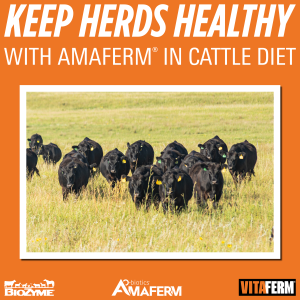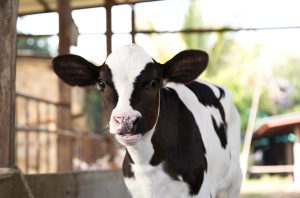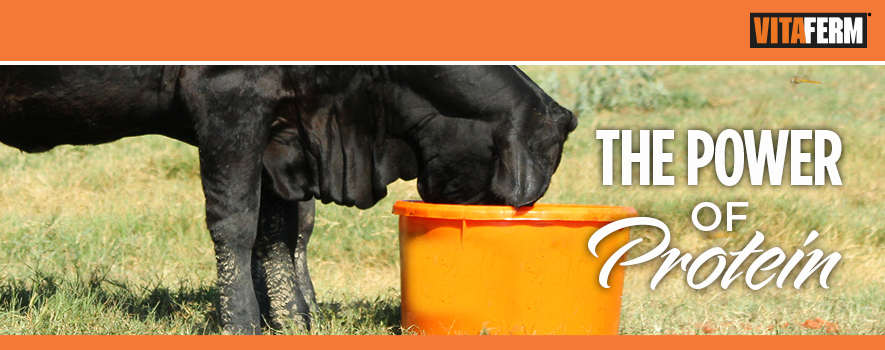
Protein is essential within the diet of a ruminant to supply the ammonia needed for microbial growth and to provide the amino acids needed for absorption from the small intestine. A deficiency in protein can limit microbial activity, microbial protein synthesis and rate of digestion. All these can in turn impact feed and energy intake. Furthermore, if an animal receives insufficient amounts of protein, production of meat, milk, and wool can be dramatically reduced.
Here are a few helpful tips to proper protein supplementation:
1. IDENTIFY REQUIREMENTS. In order to develop a cost effective supplementation program, you must first know the protein requirements of your animals. Requirements for protein vary throughout the year and are dependent on the animal’s stage of production. For example, growing calves and cows in early lactation have some of the highest protein requirements. From weaning to puberty, cattle experience the largest increase in protein deposition throughout their lifetime. In turn, their requirement for dietary protein is particularly high as well. In regards to a cow that has just calved, her requirements are highest the first two months post calving due to the increase in protein demanded for lactation; while her lowest requirements are seen post- weaning. A cow’s protein requirement will begin to gradually increase again as fetal development increases.
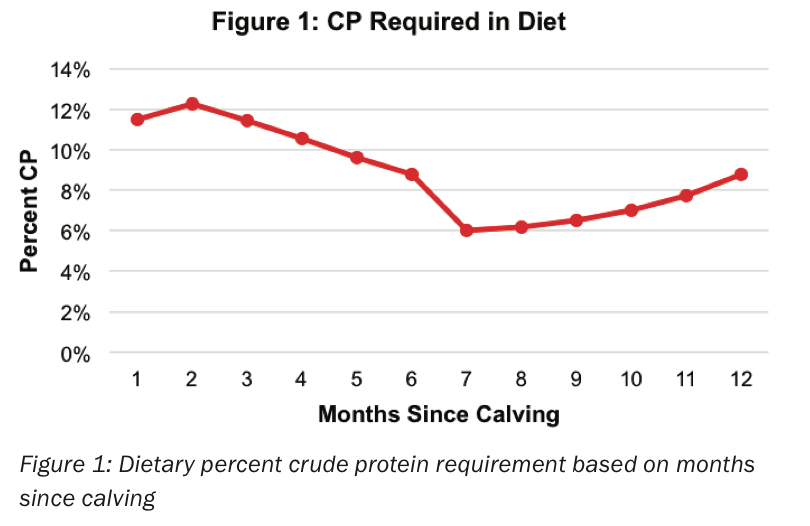 2. IDENTIFY WHAT IS IN YOUR FEED. The second step in creating a successful supplementation program is knowing the protein content of your total diet. Protein can come from pasture, stored forages and supplemental feeds such as grain. BioZyme provides lab testing and ration balancing services free of charge to its customers. By understanding the nutrient profile of your available feedstuffs, you can better identify what supplements you can add to your feeding program to meet nutrient requirements and optimize animal performance. One of the services that BioZyme offers is free forage testing and ration balancing. If you are interested in participating, please contact your ASM.
2. IDENTIFY WHAT IS IN YOUR FEED. The second step in creating a successful supplementation program is knowing the protein content of your total diet. Protein can come from pasture, stored forages and supplemental feeds such as grain. BioZyme provides lab testing and ration balancing services free of charge to its customers. By understanding the nutrient profile of your available feedstuffs, you can better identify what supplements you can add to your feeding program to meet nutrient requirements and optimize animal performance. One of the services that BioZyme offers is free forage testing and ration balancing. If you are interested in participating, please contact your ASM.
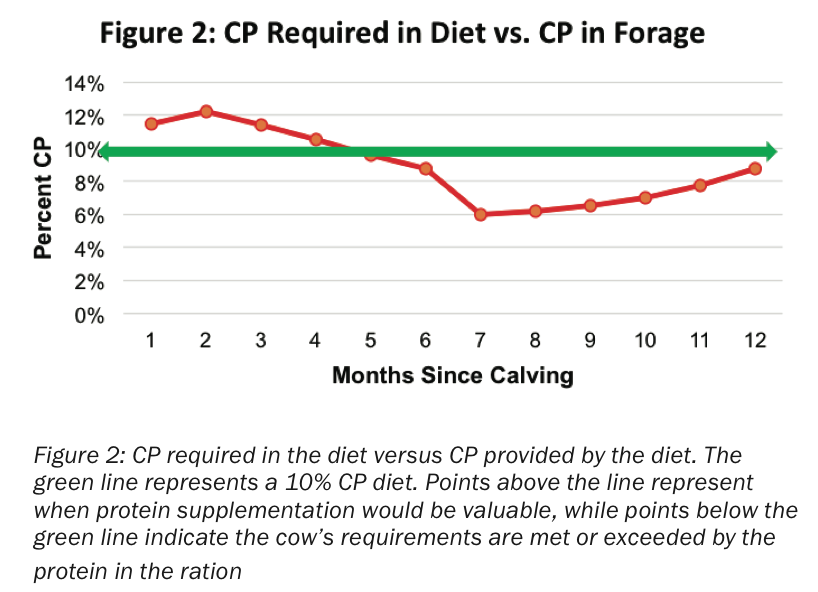
3. IDENTIFY WHICH PRODUCT BEST FITS YOUR MANAGEMENT SITUATION. Generally, protein supplementation is needed in the late summer when forage quality is at its lowest and when grazing crop residues in late winter. For fall calving herds, forage protein is usually limiting during early lactation.
VitaFerm® Concept•Aid® Protein Products offer two ways to help producers meet their supplemental protein needs. All protein supplements contain 20% CP and provide enough vitamins and minerals to serve as a replacement for loose mineral supplements. BioZyme offers its protein supplements in a tub or meal form to cater to differing management scenarios, allowing for maximum convenience along with improved animal performance.
Proper protein supplementation at various stages of production can prove extremely beneficial to overall animal productivity. The Amaferm advantage present in VitaFerm products increases the rate of digestion, allowing animals to meet their nutrient requirements faster and on less feed. Increased forage digestion provides for greater microbial growth and production of microbial protein to provide the animal with more protein for growth, lactation and reproduction.
